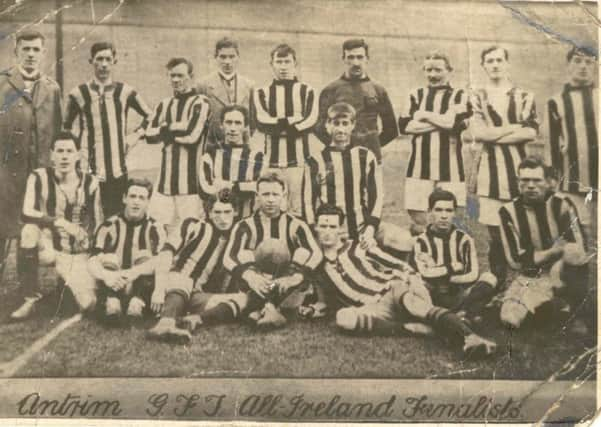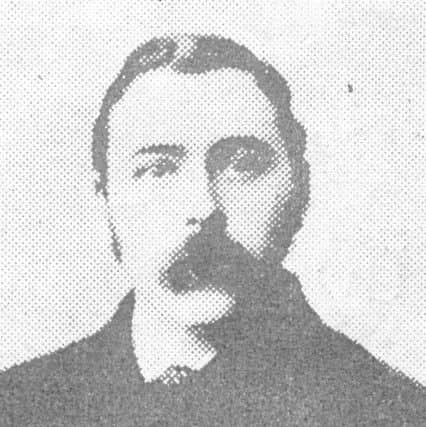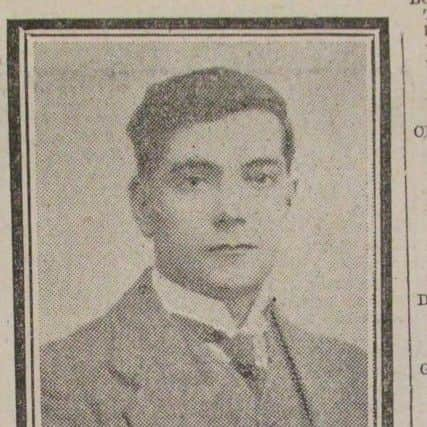The GAA members who served with British Army in WWI


Dr Donal McAnallen began the research in 2014 while he was working for the Ulster Council of the GAA.
He took the project with him when he left in 2015 and over the last three years he has continued to dig for stories.
Advertisement
Hide AdAdvertisement
Hide AdDr McAnallen said: “The assumption that the GAA – having traditionally barred soldiers from its ranks – stood against the British campaign in the First World War, has persisted for the last century.


“I’ve uncovered many instances where people belonging to the GAA fought for the British Army.”
The 39-year-old teacher said his research has been “complex and time consuming” due to the lack of records kept by GAA clubs and newspaper articles linking soldiers to the clubs they may have played for.
“There were plenty of articles written about the GAA’s relationship with nationalism and republicanism, but there was very little about GAA members’ involvement in WWI.
Advertisement
Hide AdAdvertisement
Hide Ad“I’ve drawn together a whole series of different, disparate sources. Newspapers could be hit and miss when trying to find relevant articles. During the early part of the war, some of the nationalist papers reported on recruitment, but as the war wore on there were less reports.


“In some areas, the newspapers that were more unionist were inclined to say that these soldiers were a member of a certain GAA club.
“My overall impression is that there certainly wasn’t any element of stigma attached with joining the British Army but after the first year or so the nationalist press became less willing to draw attention to it.
“In later years, for nationalists there was much more willingness to forget about the First World War, and certainly not to commemorate it. The mood was set by the political events at the time – war of independence, partition.”
Advertisement
Hide AdAdvertisement
Hide AdHe outlined another limiting factor in his study: “If you look at the likes of an established rugby club – it’s likely they kept records or had memorial plaques for those members who fought and died during the First World War. Those men generally went through grammar schools, they were maybe men of rank.


“Whereas these GAA members were playing for small, short lived clubs. These clubs didn’t have the same profile. When their death was reported their membership of a Gaelic club wasn’t seen as significant, except in a few instances. Also very few of these men would have gone on to achieve significant rank, which meant their deaths were not reported in any great depth.”
Dr McAnallen said he did not believe the GAA had tried to whitewash its members’ involvement in WWI, but he admitted record keeping was incredibly sparse.
He said: “It’s only today it seems significant maybe because we’ve been given to understand it in black and white terms that British Army members were banned for many years from playing GAA.”
Advertisement
Hide AdAdvertisement
Hide AdHe contended that a ”blind eye had been turned” to the GAA’s rule banning members of the Crown Forces in the early part of World War One: “The men were off on foreign soil so enforcement wasn’t an issue.


“The question did come up at an Ulster Council meeting in September 1914 – whether they were against the war – but they didn’t make any statement that was antipathetic to the First World War initially.
“From late 1915 onwards you began to some GAA figures in certain counties, like Owen O’Duffy in Monaghan, oppose army recruitment.
“It came to a head at the 1915 congress when there was a motion from Queen’s County (later Laois), which was asking that the rule be set aside for duration of the war.
Advertisement
Hide AdAdvertisement
Hide Ad“The motion was withdrawn before the congress. That in turn led to political controversy and why you get people talking about the GAA being anti-establishment, anti-Crown Forces.”
He said: “I’ve identified 55-60 named GAA members from Ulster but I know there were a lot more than that.
“One club in particular – St Peter’s on the Falls Road – had 20 members involved in the First World War, but I haven’t got names for all of them.


“I’ve identified seven players from around Ireland who played in All-Ireland finals and two county secretaries who joined the British defences.”
Advertisement
Hide AdAdvertisement
Hide AdNaming some of the prominent figures he said: “Thomas Bradley played for Monaghan in the 1930 All-Ireland final but was originally from east Belfast. He played for Distillery after coming back from war where he fought in Battle of the Somme.
“William Manning played in the 1912 final for Antrim. He was the lance-sergeant of Royal Dublin Fusiliers. He died in 1918.
“Corporal JP O’Farrell was one of the few Gaelic players who was identified as such with a photograph in the press. He came from Cavan but played for a Belfast club.”
He also shared the example of John McKay, a Downpatrick native and Belfast journalist who became one of the founder members of the GAA, and whose two sons joined the British Army in WWI.
Advertisement
Hide AdAdvertisement
Hide Ad• Dr McAnallen gave a lecture on his research as part of the Dockside Festival – an event celebrating the completion of Alexandra Dock.
• For a list of Dockside Festival events visit www.hmscaroline.co.uk